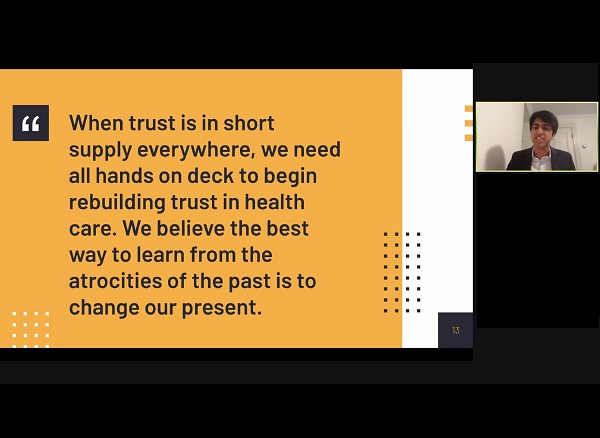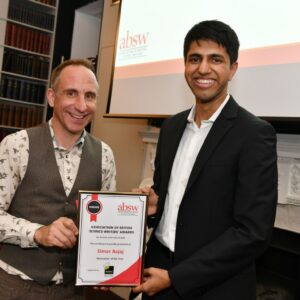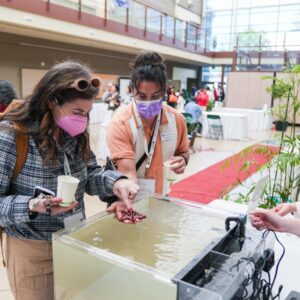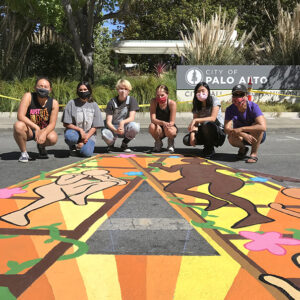Last week, Simar Bajaj ‘20 gave a presentation to Harker students to expand on the points made in an essay he co-wrote that was published in the New England Journal of Medicine in January. In the piece, he and Dr. Fatima Stanford argue that distrust of COVID-19 vaccinations among Black Americans is the result of decades of systemic racism built into the medical profession, and that too much attention is focused on well-known incidents such as the Tuskegee syphilis study to explain hesitancy among Black Americans to accept the vaccines.
While the horrors of these incidents should not be forgotten, Bajaj said, “you know what challenges you’re facing through the health care institution if you’re a Black individual, especially during this pandemic, which has highlighted a lot of inequities.” Many studies have shown that Black patients are misdiagnosed and are refused treatment and painkillers at much higher rates.
“If you are a Black man in the emergency department and the doctor … is not giving you your painkillers, even though you’re visibly in pain,” Bajaj said. “In those moments … perhaps you are thinking about Tuskegee and historicizing your frustrations there, but perhaps more likely you are thinking about the racist doctor that’s not giving you your painkillers.”
Bajaj said an approach known as “barbershop-based intervention” could help build trust among Black Americans. These interactions, in which Black patients are cared for by Black health care professionals, provide racial concordance that has had very positive outcomes. In one study, barbershop-based intervention brought the blood pressure of 64 percent of Black men to normal levels, compared to just 12 percent of the control group who continued to visit their primary physician. “Barbershops are often forums of camaraderie for Black individuals,” Bajaj said. “There’s this relationship between the barber and those getting their hair cut that is very close.”
He also cited research performed by Dr. Stanford that demonstrated an increased interest in seeking information when COVID prevention messages were delivered by Black physicians. “There’s a lot of information being thrown at us during the pandemic, a lot of which is incredibly important to understand and lot of which can impact health literacy,” Bajaj said. “So you can see the implications here.”
Lay press coverage that zeroes in on Tuskegee and other historical atrocities, Bajaj said, can also further the damaging idea that racism in medicine is mostly in the past. “I found it incredibly frustrating when I would read these lay press articles where they’d try to [explain that] Black individuals don’t trust the vaccine because of Tuskegee or because of J. Marion Sims or because of this or that,” he said. “And I thought such a framing is incorrect and harmful.”














